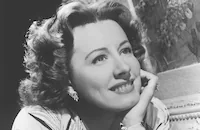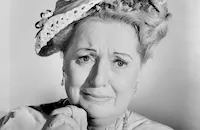Over 21

Brief Synopsis
Cast & Crew
Charles Vidor
Irene Dunne
Alexander Knox
Charles Coburn
Jeff Donnell
Loren Tindall
Film Details
Technical Specs

Synopsis
Deciding that his responsibility to his newspaper and his country dictate that he experience the war first hand, Max Wharton, editor of the New York Bulletin , resigns his post to enroll in Officers' Candidate School. Max's decision infuriates Robert Drexel Gow, the Bulletin's owner, who declares that Max is wasting his talents. Max's wife, celebrated novelist and screenwriter Paula "Polly" Wharton, is in Hollywood adapting her novel into a screenplay, but after completing her task, she joins him at the Tetley Field officers' school in Florida. Although Max must live in the army barracks, he rents a delapidated bungalow for Polly. Polly arrives just as the former tenant, Jan Lupton, is about to leave with her husband Roy, who has just completed his training. After telling her about the primitive living conditions of the bungalow, Jan advises Polly to pray that Max is not sent to Crocker Field when he graduates because wives are not allowed there. Soon after, Max arrives at the bungalow to greet Polly, and when he confides that he is having difficulty memorizing the multitude of details contained in the army manual, Polly remembers Jan's assertion that after the age of 21, the brain is unable to absorb facts. When Gow phones demanding to speak to Max, Polly refuses to allow him to talk to him and tells her husband that the call is from Hollywood producer Joel I. Nixon. On the night that Max invites Frank MacDougal, the most knowledgeable soldier on the post, to dinner, Polly's neighbors pitch in and prepare the meal for the undomesticated Polly. Over dinner, Frank discusses a planned summit meeting of the Allied leaders, arguing in favor of a policy of distrust and isolationism. After Frank leaves, Max, angered by his opinions, confides his fear of failing officer's training school to Polly and questions his worth to the army. When the army newspaper asks him to write a column, Max, spurred by his distate for Frank's views, accepts. While shopping at the army store one day, Polly meets Mrs. Gates, the mother-in-law of post commander Colonel Foley. When Mrs. Gates gushes her admiration for Polly's work, Polly, hoping to help Max, invites the family over for drinks. Upon returning home, Polly finds Gow waiting there with a stack of Bulletins , the paper that has been banned from the Wharton household. After showing Polly the insipid columns written by his new editor, Gow states that circulation has dropped and threatens to sell the paper unless Max returns. In reply, Polly admonishes Gow not to burden Max with his problems and hides the paper. When the Foleys arrive, the colonel tells Max that Washington has been monitoring his columns, causing Gow to gloat and opine that Max is wasting his talent by playing soldier. After the Foleys leave and Max returns to the post, Polly assures Gow that Max will flunk out soon and promises to approach him about writing a weekly editorial. Deciding to placate Gow by writing the column herself under her husband's name, Polly goes to work. When Max pays a surprise visit, she claims to be busy rewriting scenes for Nixon. As the weeks pass, Polly's editorials appear in the Bulletin under her husband's byline. After passing his final exams at the bottom of his class, Max goes to tell Polly the news and finds Nixon waiting at the bungalow. When Max mentions Polly's rewrites, Nixon, baffled, denies haven spoken to her since she left Hollywood. Realizing that Polly has been lying to him, Max goes to the library and sees "his" editorials in the Bulletin . Gow, meanwhile, frantically calls Polly to learn the outcome of Max's exams. Finally answering the phone, Polly tells Gow that her husband passed and begs him not to sell the paper just because Max will be sent overseas. Max overhears the conversation but doesn't tell Polly. Soon after, Max accepts Foley's invitation to address the graduating class. On graduation day, Gow joins Polly in the stands and they listen as Max ascends the podium and reads one of Polly's editorials. Polly runs out of the stands in shame, and when she returns home, she finds Max and Gow waiting for her. When Gow declares that the paper is worthless without Max's opinions and he intends to sell it, Max informs him that Polly wrote the editorials and suggests he hire her. Polly refuses to accept the job until she learns that Max has been assigned to Crocker Field and, realizing that she will not be able to accompany him, agrees to go to New York and become the Bulletin's new editorial writer.

Director

Charles Vidor
Cast

Irene Dunne

Alexander Knox

Charles Coburn

Jeff Donnell
Loren Tindall

Lee Patrick
Phil Brown

Cora Witherspoon
Charles Evans

Pierre Watkin
Anne Loos
Nanette Parks
Adelle Roberts
Jean Stevens
Billy Lechner
Robert Williams
Marilyn Johnson

Carole Mathews
Jo Gilbert
Pat Jackson
Abigail Adams
Francine Ames
Charles Marsh
Robert Emmett Keane
Forbes Murray
Cosmo Sardo

Lillian Bronson
Alfred Allegro
Dan Stowell
George Carleton
Doug Henderson
Michael Owen
George Peters
John James
Bob Meredith
William Hudson

James Flavin
Rube Schaffer
George Bruggeman
Chuck Hamilton
Leroy Taylor
Gladys Blake
Wallace Pindell
Crew
Sidney Buchman
Sidney Buchman
Ray Cory
Louis Diage
Howard Fogetti
Stephen Goossón
Thelma Hoover
Juanita Lopez
Jean Louis
Rudolph Maté
Otto Meyer
Ray Nazarro
Victor Scheurich
Marlin Skiles
Rudolph Sternad
M. W. Stoloff
Edwin L. Wetzel

Film Details
Technical Specs

Articles
Over 21
Made during WWII and released just after V-J Day, Over 21 has some insightful things to say about men's and women's roles in society at the time, specifically in an era in which women were taking on so much traditionally male work. Film historian Jeanine Basinger, in her book A Woman's View: How Hollywood Spoke to Women 1930-1960, has expounded on these themes: Dunne is "a career woman who takes over her husband's role in life. [She] becomes both male and female hero to the story." Over 21 shows Dunne as incapable of baking an apple pie, and Knox as unfit for boot camp. "Their gender failures," writes Basinger, "hers as cook and his as athlete, are appropriate to a time in pop-culture history in which audiences were asked to be supertolerant of one another. It was also a time in which women had to do men's jobs...Irene Dunne takes her husband's place, and he is proud of her for it. She is, he says, 'the best newspaperman there is.' She has helped him through school, mothered him, loved him, covered his job for him, and he loves her for it. She has become a man, and the action is welcome. But only in wartime, and only because the play was written by a woman!"
In addition to writing the play, Ruth Gordon also played the Dunne character on Broadway. Of the film version, The New York Times noted that Dunne deliberately performed her part in much the same manner as Gordon had on stage: "the strong urge to ape Miss Gordon, not only in manner but in voice (although it may have been strictly unconscious), becomes monotonous and distracting after a time... The role is (pardon us) over-Dunne." Chances are this was only noticeable to those of the era who had actually seen Gordon play the role.
Supporting player Charles Coburn won high praise from critics, with The Times calling him "comically explosive."
Producer: Sidney Buchman
Director: Charles Vidor
Screenplay: Sidney Buchman, Ruth Gordon (play)
Cinematography: Rudolph Mate
Film Editing: Otto Meyer
Art Direction: Stephen Goosson, Rudolph Sternad
Music: Marlin Skiles
Cast: Irene Dunne (Paula Wharton), Alexander Knox (Max Wharton), Charles Coburn (Robert Gow), Jeff Donnell (Jan Lupton), Loren Tindall (Roy Lupton), Lee Patrick (Mrs. Foley).
BW-102m.
by Jeremy Arnold

Over 21
Quotes
Trivia
Notes
In the opening onscreen credits, the phrase "The New York Stage Success" precedes the film's title. According to a March 1944 news item in Hollywood Reporter, Columbia paid $350,000 for the screen rights to Ruth Gordon's play, which had been totally financed by Twentieth Century-Fox. According to an August 1944 Hollywood Reporter news item, Rosalind Russell was considered for the lead in this picture but dropped out of the competition to get an early start on Sister Kenny (see below), which was later delayed until November 8, 1945. According to a news item in Hollywood Citizen-News, the United States War Department assigned Lt. Tom Harding to the production to insure the authenticity of the soldiers' appearance and behavior.














